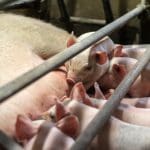Are the foods we’ve relied on for generations putting our health at risk? Meat and dairy, once hailed as dietary staples, are now under scrutiny for their potential links to serious health issues like heart disease, cancer, and chronic conditions. As research raises questions about their impact on well-being, plant-based diets are emerging as promising alternatives that could offer both nutritional benefits and reduced risks. This article explores the evidence behind these concerns and highlights practical steps to help you navigate your dietary choices with confidence
Food is not just a necessity; it is an integral part of our culture and daily life. For many of us, meat and dairy products have been staples in our diets since childhood. However, in recent years, concerns have been raised about the potential dangers these products pose to our health. Today, we delve into the controversial link between meat and dairy consumption and human health, exploring the evidence-based insights surrounding this heated debate.

The Modern Diet: Heavy Reliance on Meat and Dairy Products
In the Western diet, meat and dairy products hold a prominent place. From juicy steaks to creamy milkshakes, our plates and glasses have long been filled with these animal-based delights. Part of this reliance can be attributed to historical and cultural factors, as well as the widespread availability and affordability of meat and dairy products today.
Health Concerns Associated with Meat Consumption
Research has shown a clear association between excessive meat consumption, particularly red and processed meats, and an increased risk of cardiovascular diseases. The saturated fat, cholesterol, and sodium content found in meat can contribute to the development of heart disease and stroke. Studies have consistently found a positive correlation between red meat consumption and cardiovascular issues, primarily due to these harmful components.
Potential carcinogenic effects
On the subject of cancer, studies reveal a link between certain types of meat and various forms of the disease. Processed meats, in particular, have been classified as carcinogenic. This classification is based on the presence of harmful compounds like heterocyclic amines (HCAs) and polycyclic aromatic hydrocarbons (PAHs) that are formed during the cooking process. These substances have been shown to increase the risk of certain cancers, including colorectal cancer.
The Dairy Debate: Bone Health and Beyond
For decades, we have been told that dairy consumption is essential for strong bones and the prevention of osteoporosis. While dairy products are undoubtedly rich in calcium, recent studies challenge the belief that they are the be-all and end-all for bone health. Surprisingly, some research suggests that high dairy intake may not always correlate with improved bone health indicators.
Additionally, certain associations between high dairy consumption and chronic diseases have come to light. For instance, studies have found a potential link between dairy intake and the risk of prostate cancer, breast cancer, and type 1 diabetes. One possible explanation is the presence of insulin-like growth factor 1 (IGF-1) in dairy products, which has been shown to promote cell growth and could influence the development of these diseases.
Alternative Diets: Mitigating the Risks?
A growing number of individuals are exploring plant-based diets as an alternative to the traditional meat and dairy-heavy approach. These diets, which focus on minimising or eliminating animal products, have been found to have numerous health benefits. Research consistently shows that plant-based diets can improve cardiovascular health, reduce the risk of certain cancers, and even contribute to increased longevity.
Balancing nutritional needs: Finding the right substitutes
If you’re considering reducing your meat and dairy intake, you may wonder how to obtain essential nutrients from other sources. Fortunately, numerous plant-based alternatives can help you meet your nutritional requirements. Legumes, tofu, tempeh, and seitan are excellent sources of plant-based protein, while leafy greens, fortified plant-based milks, and certain nuts and seeds can provide sufficient calcium. By making informed choices and incorporating these substitutes into your diet, you can maintain a nutritionally balanced lifestyle.
Conclusion
The debate surrounding the potential dangers of meat and dairy consumption is complex and multi-faceted. While indulging in these products in moderation may not cause immediate harm, excessive consumption can pose risks to our health. It’s important to be aware of the evidence linking meat and dairy to cardiovascular diseases and certain types of cancer. Moreover, recognizing that dairy may not be the ultimate solution for strong bones is crucial.
However, it’s worth noting that a well-balanced diet, which may include moderate amounts of meat and dairy, can still be part of a healthy lifestyle. Ultimately, the choice is yours. By considering the available evidence and seeking professional advice when needed, you can make informed dietary decisions that prioritize your health and well-being in the long run.

4.3/5 - (42 votes)



